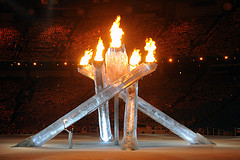I don’t have a ton of time, but I needed to get some thoughts out about the dispute between USA Hockey and the US Women’s National Team. My unfinished take below is based on covering the sport here and there since 2011. I will try to finish it and edit it better eventually, but for now, I just wanted to get it out there.
——————————-
Although it is not an Olympic year, the U.S. Women’s National team has harnessed the weight of Olympic competition in their World Championships holdout against USA Hockey.
An Olympic hopeful in any sport can tell you about the importance of the pre-Olympic year. Major competitions are often held in Olympic venues (although they aren’t in women’s hockey), teams start to gel in a certain way that will influence selection in the Olympic year and individuals try to put the final flourish on credentials that will earn them an Olympic spot.
For national organizing bodies like USA Hockey, pre-Olympic years are key for evaluation and marketing purposes. They are looking at an athlete’s recent competition performances with a magnifying glass, seeing how they meet the pressure to perform and how they fare against the world’s best. It’s also a key year to getting faces out in front of the American public, giving mainstream fans a taste of who they will be rooting for next February.
Holding out of a U.S. hosted World Championships during a pre-Olympic year, exactly what the U.S. Women’s National Team is doing, disrupts that finely tuned machine, making it the most effective form of protest. The pre-Olympic machine has ground to a halt for U.S. women’s hockey.
While the Women’s National Team has been clear in all of what they are fighting for – proper compensation for devoting themselves to the sport for a four-year span, equal recognition by USA Hockey properties, equipment equality, and a better development system for women’s hockey – USA Hockey is taking an interesting PR turn. Their statements in response to the National Team’s coordinated protest only address the compensation piece of the complaint, and do so in great detail. They’re trying to turn public opinion by making the protest all about money, repeating endlessly that they are not in the “business of paying athletes.”
But the Women’s National Team consider compensation a small part of the protest. Building a development program structure would make great strides in checking off the rest of the National Team’s wants. Marketing opportunities would grow from having a group of athletes “in-house” and representing USA Hockey from an early age. It works on the men’s side, where we have heard about Auston Matthews from way before his NHL Draft Date. His residency within the US Under 18 Team wasn’t the only reason he was so visible, but it sure helped USA Hockey promote his abilities better.
A better women’s hockey development structure would might also create coaching jobs for members of the current National Team, and coaching is an underlying issue and cause of this protest that no one seems to have touched upon. Members of the National Team approached ESPNW and other outlets a few weeks prior to their protest with claims that they currently were coachless, with previous coach Ken Klee ousted quietly after the 2016 Four Nations Cup. USA Hockey swiftly released a statement saying that Robb Stauber who led the US team for a few games against Canada at the start of 2017, would lead the team at the upcoming Worlds. Was the coaching situation the tipping point for the National Team’s protest, or was approaching the media about it a test case for a future protest?
Also along coaching lines, why hasn’t the National Team addressed the lack of women’s coaches in the current system? They went from an Olympic Team led by Harvard’s Katey Stone in 2014 to only having female coaching on the World Juniors team (where Boston University’s Katie Lachapelle and Boston College’s Courtney Kennedy have received several opportunities over the years as assistants.) Why haven’t Kennedy and Lachapelle gotten more senior team chances? If it is due their college coaching demands, how can we make these national team coaching positions just as enticing as their assistant positions on D1 programs?
